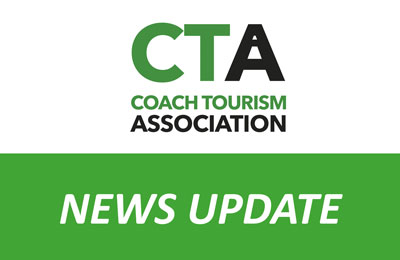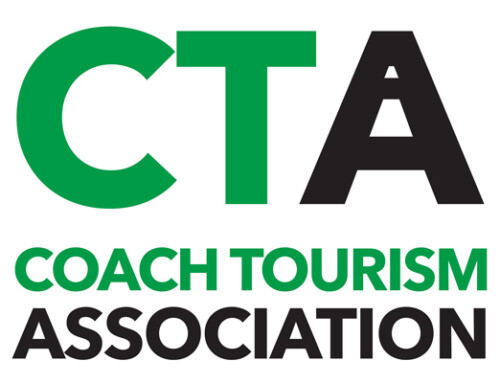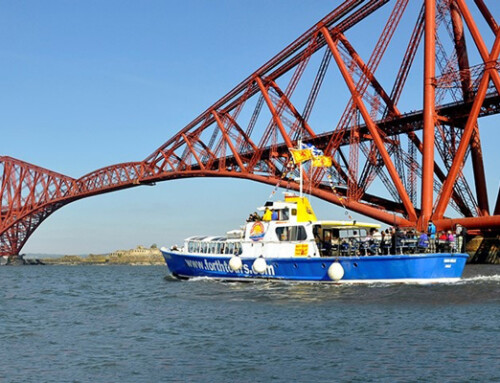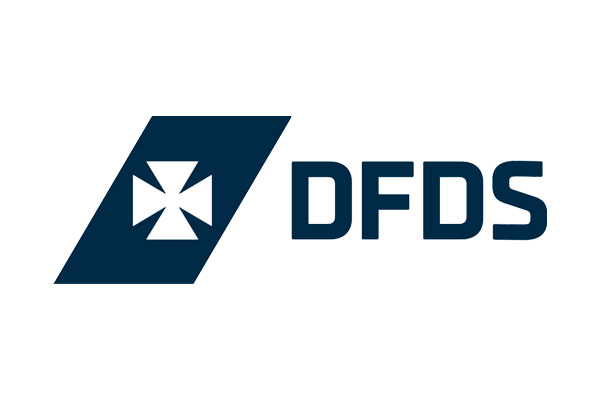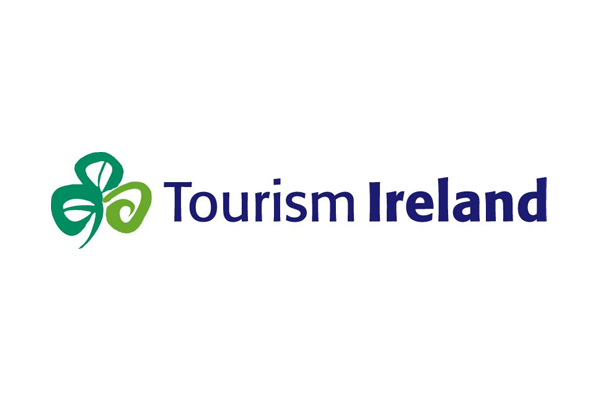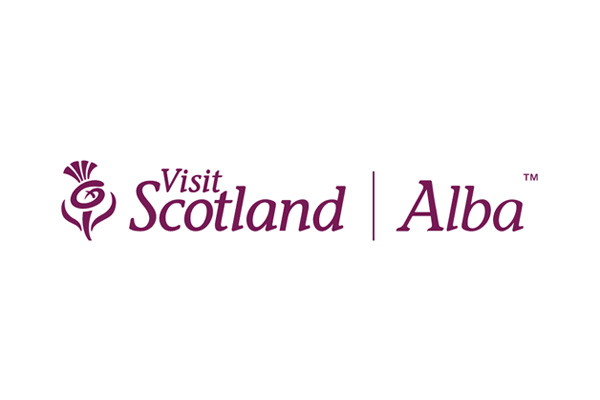COVID-19 Updates – week commencing 29/11/21
More updates of developments from the government and various links to interpretation and guidance.
Go to date:
29 November 2021 …
Tourism Alliance update
You will have no doubt seen much on the news about the Government’s response to the new Omicron Covid strain. Here are the main points:
New Measures being Introduced
First, here are the measures that the Minister has announced:
-
- All international arrivals must take a Day 2 PCR test and self-isolate until they receive a negative result.
- All contacts of suspected Omicron cases must self-isolate, regardless of their vaccination status. They will be contacted by NHS Test and Trace.
- Face coverings will be made compulsory in shops and on public transport from next week. All hospitality settings will be exempt.
One point to note on this is that the requirements for the Day 2 PCT test to not apply to travel within the Common Travel Area.
It is expected that the guidance related to the wearing of masks on public transport and in retail businesses will be published today so we will have more information regarding the impacts on tourism businesses but the expectation is that the requirement will cover shops attached to attractions.
New Countries Added to Red List
On Sunday at 4am, Angola, Malawi, Mozambique and Zambia were added to the UK red list with South Africa, Botswana, Eswatini, Lesotho, Namibia and Zimbabwe. This means that people cannot travel to England if they have been in these countries within the previous 10 days unless they:
-
- are a British or Irish national
- have residence rights in the UK
Children arriving in England from a red list country should not be travelling alone unless they are students in boarding school, higher education or further education.
Even if they are fully vaccinated, people who have been in a red list country within the last 10 days must:
-
- quarantine for 10 full days in a managed quarantine hotel (the day you arrive in England is day 0)
- take a coronavirus (COVID-19) test on or before day 2 and on or after day 8 of quarantining – these are included in your hotel package
People transiting through England directly to a country outside the Common Travel Area do not need to enter managed quarantine. Instead, they can travel straight from their port of arrival to another port in England to catch a flight, train or ferry going outside of the Common Travel Area (ie, they can arrive in Heathrow and then travel to London and get on the Eurostar)
https://www.gov.uk/guidance/booking-and-staying-in-a-quarantine-hotel-when-you-arrive-in-england
Northern Ireland Tourism Alliance update
Northern Ireland’s regulations with regard to the Covid Status Certification come into operation on Monday 29 November. There will be a grace period until 13th December to enable the process to bed-in and provide an opportunity to make amendments to the regulations if required.
Below is a summary of the main points.
Businesses/Events that the new regulations apply to:
These new regulations apply in the following:
- All licenced premises, including those which provide a ‘bring your own’ (BYO) facility, where intoxicating liquor may be consumed on the premises
- All events where intoxicating liquor may be consumed on the premises, regardless of numbers attending
- Events which meet the criteria below, regardless of whether intoxicating liquor may be consumed:
- Consists or expected to consist of more than 10,000 people (including staff, performers) simultaneously
- Wholly or mainly indoors – 500 or more people and where not all of the attendees will be seated
- Wholly or mainly outdoors – 4,000 or more people (including staff, performers) simultaneously and where not all attendees will be seated
- The following premises are included, regardless of activity:
- Theatres
- concert halls
- cinemas
- premises used for purposes of conference/exhibition
- indoor premises when used for the purpose of performance, recording or rehearsal other than private dwelling.
NOTE: In those mixed use premises, the check is only required upon entry to that part of the premises where intoxicating liquor may be consumed. For example, in sports clubs, only those people entering bar/restaurant will need their covid status certified.
Exemptions to the new regulations:
The following exemptions are in place:
- Exempt events
- Funeral, marriage ceremony, civil partnership registration. Receptions relating to these events are permitted other than when the reception/gathering is held in premises where intoxicating liquor may be consumed on the premises)
- A drive-in event
- A lawful picket
- An illuminated trail or pathway
- Communal religious worship at a place of worship
- An event held at an outdoor public place with no fixed entry points and for which tickets or payments or both are not required
- Exempted Premises/Businesses
- Ports/Airports
- Cross-border inter-city rail services between Dublin and Belfast
- A place of worship
- Educational establishments other than those parts of the premises where intoxicating liquor may be consumed on the premises
- Exemptions of those related to the business:
- An emergency service responder
- A person employed at or responsible for the relevant premises or relevant event
- A person providing services at a time when no member of the public is in attendance
- A person carrying out a public service function or essential repairs or maintenance at the premises or relevant event
- A resident in tourist accommodation, except when that person is an a part of the tourist accommodation to which the public have access and which intoxicating liquor may be consumed.
- A person under 18 years of age
Supporting Evidence
Those persons attending relevant events/premises are able to provide the following evidence of their Covid status:
-
- Paper or digital vaccination certificate showing the person have completed a course of doses of an authorised vaccine.
- Evidence can be provided via the Covid Certification App
- Vaccination card, showing dates of vaccination doses, with photographic ID
- EU/GB digital certificates are able to be validated through the CovidChecker App.
- Certification by text or email through the NHS Covid-19 reporting app of a negative lateral flow test (LFT) within 48 hours of attending event/premises
- Valid notification of a positive PCR test taken no earlier than 30 days and no later than 180 days of attending event/premises
- Note that w/c 6th December the Department of Health an app will be available to read the QR code to check the test is with the date range
- Confirmation in writing of those having participated (current/present) in a relevant clinical trial from the organiser of the trial
- Letters have been issued to those people who have participated in a relevant clinical trial with the details to get a letter. There will be a digital option provided and information on this will be issued to those relevant people.
- Medical exemption evidencePeople are able to get the relevant documentation by phoning the helpline. The process includes screening questions, confirmation from relevant Health Trust and then production of a printed/digital certificate. The digital certificate will be available from 13th December.
- Paper or digital vaccination certificate showing the person have completed a course of doses of an authorised vaccine.
30 November 2021 …
Tourism Alliance update:
JCVI guidance on Booster Shots
The Joint Committee on Vaccination and Immunisation (JCVI) has issued a statement that advises Government to extending the UK COVID-19 vaccination programme to offer:
-
- booster doses to adults aged 18 to 39 years
- second doses to children and young people aged 12 to 15 years
In a Statement to parliament this afternoon, the Health Secretary stated that his accepts this advice and will be acting on it. With around two thirds of the workforce in the tourism and hospitality sectors being aged under 40, businesses should aim to encourage staff to get their booster jab as soon as possible as this is rolled-out.
Here is the Health Secretary’s statement to Parliament
https://www.gov.uk/government/speeches/oral-statement-to-update-on-the-omicron-variant
Self-Isolation Guidance Updated
The guidance regarding self-isolation has been updated to say that anyone arriving into England after 4am tomorrow morning, even if they are fully vaccinated and have not been to a red list country must:
-
- must self-isolate
- take a PCR test before the end of day 2 after you arrive (lateral flow tests will not be accepted)
- can only leave self-isolation if their PCR test result is negative
https://www.gov.uk/guidance/how-to-quarantine-when-you-arrive-in-england
Public Guidance Updated
The primary Covid Guidance for the public has been updated in line with Government announcements. The core information being:
From 4am Tuesday 30 November
-
- International arrivals from non-red list countries who are fully vaccinated will need to isolate at home and take a PCR test on or before day 2 following your arrival. You will only be permitted to leave isolation if this test result is negative. If your test result is positive, you will need to isolate for 10 days.
- Face coverings will be a legal requirement in shops and on public transport.
- Those who have come into contact with an individual who may have been infected with the Omicron variant will need to self-isolate. This will apply even if you are fully-vaccinated.
These temporary measures will be reviewed in 3 weeks’ time.
https://www.gov.uk/guidance/covid-19-coronavirus-restrictions-what-you-can-and-cannot-do
Northern Ireland Tourism Alliance:
The final regulations in relation to the Covid Status Certification have been published and are available at The Health Protection (Coronavirus, Restrictions) Regulations (Northern Ireland) 2021 (Amendment No. 19) Regulations (Northern Ireland) 2021 (health-ni.gov.uk). There is also an Equality Screening on the Covid Status Certification Regulations which is available at Screening flowchart and template (health-ni.gov.uk).
There does not look to be any major changes from the regulations that I shared on Saturday. A couple of things to note:
- Where two or more events are taking place at the same place and at the same time, those events are to be treated as a single event (to ascertain whether the covid certification check is required) unless those attending one event are, at all times, unable to make physical contact with those attending any other event.
- Businesses subject to the regulations have a requirement to keep a written statement describing the system they have in place as referred to in regulation
1 December 2021 …
Tourism Alliance update:
Legislation Answers Some Queries
While we are waiting for the Q&A from DCMS on the questions that you have been raising, there are some queries that were answered in the legislation that was published yesterday evening. These include:
Face Masks on Open-Top Buses and on Boats
Section 4 (g) of the legislation provides an exemption from the use of facemasks where a person is in any part of a public transport vehicle which is not indoors
People in Compartments on Public Transport
Section 4 (h) of the legislation provides an exemption from the use of facemasks where a person is allocated a cabin, berth or other similar accommodation, at any time when they are in that accommodation. So this would include cabins on ferries and could also private cabins on trains.
Dining Carriages
Section 4 (i) of the legislation provides an exemption from the use of facemasks where a person is in an area within a public transport vehicle which is being used wholly or mainly by people
eating or drinking, or dancing. So wearing facemask is exempt in places such as dining carriages and bars/clubs on ferries.
Gift Shops in Cafes
Section 6 (f) states that facemasks do not need to be worn in any “other premises, or part of premises, which are being used wholly or mainly by people eating or drinking.” This means that if an attraction has a café that is combined with a gift shop, then the main purpose of that part of the premises dictates whether facemasks need to be worn. At the moment there is no guidance on how to determine the main purpose of a space that combines these two functions but it would seem reasonable to work on the basis of the floor space allocated to each function.
New Self-Isolation Legislation
The Government has passed new legislation that amends the Health Protection (Coronavirus, Restrictions) (Self-Isolation) (England) Regulations 2020 to say that:
- where an adult is a close contact of someone who has tested positive for coronavirus and is suspected of, or confirmed as, having an Omicron variant, the exemptions from the duty to self-isolate (for those who are participating in coronavirus related research, fully vaccinated, participating in a clinical vaccine trial, or clinically unable to be vaccinated) do not apply;
(b) children who are a close contact of someone who has tested positive for coronavirus and is suspected of, or confirmed as, having an Omicron variant must self-isolate.
Basically, this means that the current exemption from self-isolation for people who have been fully vaccinated has been revoked, which will have implications for businesses with regains to staffing.
https://www.legislation.gov.uk/uksi/2021/1338/pdfs/uksi_20211338_en.pdf
Public Guidance on Face Masks
The public guidance on when and where to wear face coverings has been updated. The places where wearing a face covering in mandatory are:
-
- shops and supermarkets (places which offer goods or services for retail sale or hire)
- shopping centres (malls and indoor markets)
- auction houses
- post offices, banks, building societies, high street solicitors and accountants, credit unions, short-term loan providers, savings clubs and money service businesses
- estate and letting agents
- premises providing personal care and beauty treatments (barbers, hair salons, tattoo and piercing studios, nail salons and massage centres)
- pharmacies
- premises providing veterinary services
- retail galleries (as opposed to art galleries)
- retail travel agents
- takeaways without space for consumption of food or drink on premises
- public transport (aeroplanes, trains, trams, buses, coaches and ferries), taxis and private hire vehicles
- any car or small van during a professionally delivered driving lesson, a practical driving test, or during one of the practical tests for giving driving instruction, and in all HGV lessons and tests
- transport hubs (airports, rail and tram stations and terminals, maritime ports and terminals, bus and coach stations and terminals)
New Assurance Guidance For Local Authorities
BEIS has published a new version of the Assurance Guidance for Councils which sets out the minimum level of checks that Local Authorities should complete to provide assurance to both themselves and BEIS that they have addressed the risk of error, non-compliance and/or fraud associated with the various grants schemes that they have been responsible for allocating during the pandemic. This includes the Local Restriction Grants, Restart Grants, Additional Restrictions Grants and Lock Down Payments.
It is worth noting that the guidance requires Local Authorities undertake recovery action where assurance checks discover that payments have been made in error, noncompliance, or have been claimed as a result of fraud, and that Local Authority must retain all documentary evidence for a minimum of 10 years from the date of award of grant to evidence the award of grant and the assurance checks completed. To ensure that all efforts are made to recover misallocated funds, BEIS will undertake a sample review of a Local Authority Pre- and Post-Payment Assurance System on each grant scheme.
Feedback requested by DCMS on impact on tourism
DCMS have been in contact and want to know the impact that the requirement to wear face masks and concerns about the new Omicron strain are having on the tourism industry. You will have no doubt seen reports in the news that there has been a spate of cancellations associated with Xmas parties. DCMS are keen to know if cancellations like this are happen across the tourism industry and to what extent. Specifically, they would like to know:
- The level of cancellations in you sector
- The predominant reasons behind the cancellations, i.e. international travel restrictions, increased fear of catching covid, face mask restrictions
- What actions businesses have taken/or are planned to try and increase confidence and prevent cancellations
- What actions Government could take.
The turnaround on this is pretty tight, so could you let Tourism Alliance have your feedback by Monday morning.
2 December 2021 …
Tourism Alliance update:
Updated Transport Guidance
DfT have updated the transport operator and transport customer guidance to incorporate the new requirement for the public to wear face coverings when travelling inside a public transport vehicle and when in indoor transport hubs in England, unless they are exempt or have a reasonable excuse.
Transport Operators
Transport Customers
https://www.gov.uk/guidance/coronavirus-covid-19-safer-travel-guidance-for-passengers
Various Primary Guidance Documents Updated
A number of the primary guidance documents for various parts of the industry have been updated to incorporate yesterday’s changes. They include:
Accommodation Providers
https://www.gov.uk/guidance/working-safely-during-covid-19/hotels-and-guest-accommodation
Events and Attractions
https://www.gov.uk/guidance/working-safely-during-covid-19/events-and-attractions
Outdoor Public Settings
Transport Use
DfT’s weekly transport use survey is out and provides some initial indications on how the announcement of the new Omicron variant has impacted people’s behaviour. While National Rail usage has dropped by 10% (from about 71% last week to 61% this week), there was no real change in tube or bus usage over the last week. Next weeks figures should give a better picture on this.
https://www.gov.uk/government/statistics/transport-use-during-the-coronavirus-covid-19-pandemic
Chief Medical Officer’s Annual Report 2021 Health in Coastal Communities
As a departure from all things Covid, there is increasing activity within Government on the Levelling-Up Agenda – this is one of the themes that DCMS will be taking forward through the Tourism Industry Council. It therefore seems timely to distribute a copy of the CMO’s report on the health status of coastal communities.
This in-depth document highlights that coastal communities have some of the worst health outcomes in England, with low life expectancy and high rates of many major diseases with an oversupply of guest housing leading to Houses of Multiple Occupation. This, in turn, has lead to concentrations of deprivation and ill health. The central argument of the report is that the health challenges of coastal towns, cities and other communities are serious, and that a national strategy to address the repeated problems of health in coastal communities is needed in addition to local action.
It is an easy step from this to recognise that tourism could play strong role in this agenda through supporting these local economies if the right incentives for investment were put in place.
- Test And Trace Guidance Updated
I sent out the link to the change in the legislation revoking the exemption from the need to self-isolate for people contacted by Test and Trace as a result of coming into a close contact with someone with the Omicron variant. The Test and Trace guidance has now been updated to reflect the change in legislation – that these contacts must stay at home and self-isolate even if they are fully vaccinated or aged under 18 years and 6 months.
https://www.gov.uk/guidance/nhs-test-and-trace-how-it-works
The guidance for businesses on what to do if an employee is required to self-isolate has similarly been updated
https://www.gov.uk/guidance/nhs-test-and-trace-workplace-guidance
- Test And Trace Support Payments
To align with the removal of the exemption from self-isolation for people who have come into contact with someone with the Omicron variant, the guidance on the £500 Test and Trace Support Payments has been amended to remove the exemption from eligibility for people who have been fully vaccinated.
- Face Covering Poster
If you operate premises where people are required to wear a Face Covering, you can download a poster to remind customers on the following link
- Resources Related To Getting A Covid Booster
The is also a range of resource material available for businesses that want to encourage their employees to get their booster shot.
https://www.gov.uk/government/publications/covid-19-vaccination-booster-dose-resources
- Quarantine Hardship Grant Eligibility Extended
The guidance for people on eligibility for a hardship grant if they are arriving from a Red List Country and need to paid to stay in a quarantine hotel has been updated. The eligibility criteria have been extended to include:
-
- People who travelled to a country abroad before it was added to the red list and now need to return to the UK
- CJRS Guidance Updated
There has been an updated the CJRS guidance on what employers should do if they have underpaid employees through the scheme. Essentially you have two options, either top up the employees’ wages or pay the money back to HMRC. If you decide to top up your employees’ wages, this must be done within a ‘reasonable period’. This period is usually no later than:
-
- 31 January 2022 for payments received in the 2020 to 2021 tax year, for customers who file an Income Tax Self-Assessment return
- 31 January 2023 for payments received in the 2021 to 2022 tax year, for customers who file an Income Tax Self-Assessment return
- 12 months after the end of the relevant accounting period if you file a Company Tax return
- CMA Code On Environmental Claims
Moving away from Coronavirus, one thing that businesses need to be aware of is that the CMA has developed a Code on Environmental Claims. With customers becoming increasing concerned about the environmental credentials of businesses, there has been a growing number of complaints to the CMS regarding businesses “Greenwashing” their activities. To help prevent this, the CMA has developed a new code of practice for businesses that make claims regarding their environmental credentials that is based on the following 6 principles
-
- claims must be truthful and accurate
- claims must be clear and unambiguous
- claims must not omit or hide important relevant information
- comparisons must be fair and meaningful
- claims must consider the full life cycle of the product or service
- claims must be substantiated
The eagle-eyed will notice that these 6 principles align with the Consumer Protection from Unfair Trading Regulations 2008, which is the legislation that underpins them. The code is particularly useful for businesses that want to advertise what they are doing in terms of environmental protection and to mitigate against climate change.
Northern Ireland Tourism Alliance:
I hope you are well and for those that are required to implement the Covid Certification check that you not finding the process too onerous. I had a couple of meetings today with the Covid Taskforce (CTF) covering hospitality and events. I have included a summary below and some specific points raised. Please continue to send me your feedback and any questions/issues which we will speak to the CTF about.
Summary
The CTF set out the current health position – case numbers are stable but at a high number, hospital pressures have eased slightly but they are still at concerning levels and the identification of the Omicron virus is adding uncertainty with another couple of weeks before the situation will be any clearer in regard to transmissibility and severity of this new strain. The intention is to implement the check in all hospitality settings but there is no timeframe for this and further engagement is planned with industry on this.
The CTF were at pains to refute some ‘Non Facts’ circulating:
- It appears that some people are presenting documents saying that they are exempted from vaccination/testing. There are no documents currently available in NI and all of this evidence is fraudulent. Below I have set out the process that is being put in place.
- There has been a lot of speculation in social media about the introduction of stricter restrictions from tomorrow night including curfews, ban on international travel. Again this is false information and there are currently NO plans to introduce further or stricter restrictions.
The Executive have issued a statement on the current situation at http://www.executiveoffice-ni.gov.uk/news/executive-statement-current-covid-19-situation. We are due to meet with the Covid Taskforce next week to discuss the Winter Plan.
With regard to the Covid Status Certification process, work is ongoing to update guidance for the public and businesses and looking at making this more visual to make it easier to understand. This should be available next week and we will share once it is available.
All the feedback on the process from business is being collated and will form the basis of an FAQ which again should be available next week.
Regulations
Further work is being carried out on where checks should be carried out (definition of point of entry) and when, especially in mixed use premises/venues. DoH want to take a pragmatic approach especially with regard to theatres, cinemas, conference centres, concert halls, where the regulations currently state that checks must be carried out on anybody entering these premises regardless of activity. As the main risk to transmission of the virus is dwell time, the case has been made for people wanting to enter these venues to book tickets/buy gift cards etc, that the check would not be required.
For large scale events, over 1,000 people, work is being done with the events sector on making the process quicker which may involve a percentage of attendees being checked. The challenges with this include measuring how many check have been carried out. The other challenge for the large events is the number of ways that people are able to evidence there covid status, not all of which are digital and this can have a significant impact on the length of time that it takes. One venue will be piloting a booking system where people have to state how they will be evidencing their covid status which should help manage the process. Please let me know if you have any thoughts on how the process could be more efficiently managed for large scale events.
The feedback from the events sector has been more positive than from other sectors, and this is probably as the covid certification check has been used since October and there is more acceptance/expectation from the public that they will be asked to evidence their status.
Medical Exemption
From Monday, it is planned that the process to apply for a medical exemption will open. The helpline – 0300 200 7814 – will be open and agents will take people through some screening questions and validate with GP/Health Trust. It is anticipated that the process will take around 10-14 days before people get their exemption certificate. There will be an interim solution produced next week, but in the meantime if somebody says they have a medical exemption, then this should be accepted at face value. DoH have said that the number of people with a valid medical exemption will be very small. DoH are liaising with Health officials on RoI and it is hoped that the RoI will introduce QR codes that can be validate by the NI app.
Covid App
There are a number of updates being made to the Covid Apps over the next week:
- QR codes for those who are on or were previously on vaccination trials will be available and will be accepted by the CovidChecker App
- QR codes for medical exemptions will be available and accepted by the CovidChecker app
- QR codes will be available for PCR tests which will validate the test to ensure it is within the correct timeframe (no earlier than 30 days and no later than 180 days)
- Work is currently being scoped on the use of QR codes for Lateral flow tests.
